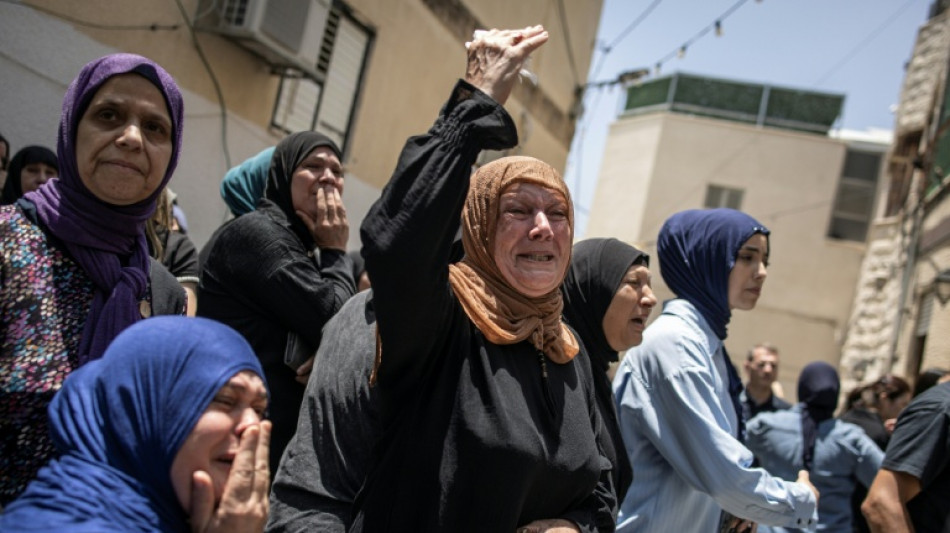
-
 Canada measles cases pass 4,500, highest count in Americas
Canada measles cases pass 4,500, highest count in Americas
-
'Underdog' Jefferson-Wooden shrugs off Tokyo worlds pressure

-
 England's Jones relishing 'special occasion' at Women's Rugby World Cup after tragic year
England's Jones relishing 'special occasion' at Women's Rugby World Cup after tragic year
-
Alcaraz, Djokovic on US Open collision course
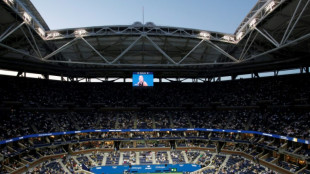
-
 US singer signs on for Russia's answer to Eurovision
US singer signs on for Russia's answer to Eurovision
-
Hundred-plus detained after fans 'lynched' during South America cup tie
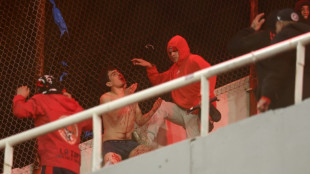
-
 Trump hails 'total victory' as US court quashes $464 mn civil penalty
Trump hails 'total victory' as US court quashes $464 mn civil penalty
-
Stocks waver ahead of Fed speech but EU tariff deal lifts Europe

-
 Slot says Liverpool will only sign right player at right price amid Isak row
Slot says Liverpool will only sign right player at right price amid Isak row
-
Walmart expects better sales, earnings as shoppers squeezed by tariffs

-
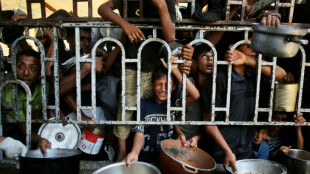 Malnourished Gaza children facing death without aid, says UN
Malnourished Gaza children facing death without aid, says UN
-
Autopsy rules out 'trauma' in Frenchman livestream death

-
 Liverpool's Frimpong out for several weeks with hamstring injury
Liverpool's Frimpong out for several weeks with hamstring injury
-
EU gets 15% US tariff for cars, but fails to get wine reprieve
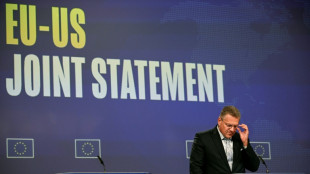
-
 Leverkusen rebuild continues with Bade and Echeverri signings
Leverkusen rebuild continues with Bade and Echeverri signings
-
Ghana singer Shatta Wale held in US fraud probe over Lamborghini purchase

-
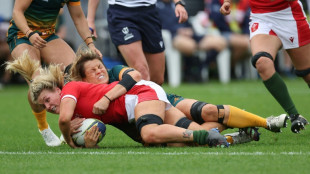 Wales skipper Callender passed fit for Women's Rugby World Cup opener against Scotland
Wales skipper Callender passed fit for Women's Rugby World Cup opener against Scotland
-
Only goal is to win, says ever-competitive veteran Fraser-Pryce

-
 Maresca adamant Fofana 'very happy' at Chelsea
Maresca adamant Fofana 'very happy' at Chelsea
-
Record EU wildfires burnt more than 1 mn hectares in 2025: AFP analysis
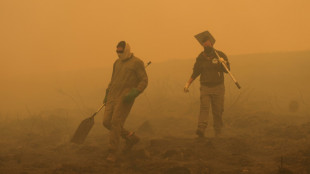
-
 Hurricane Erin brings coastal flooding to N. Carolina, Virginia
Hurricane Erin brings coastal flooding to N. Carolina, Virginia
-
Stocks slide as investors await key Fed speech

-
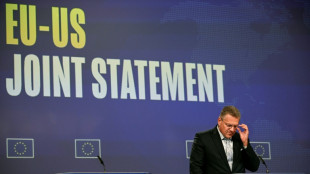 EU gets 15% US tariff for cars, fails to secure wine reprieve
EU gets 15% US tariff for cars, fails to secure wine reprieve
-
Russian fuel prices surge after Ukraine hits refineries
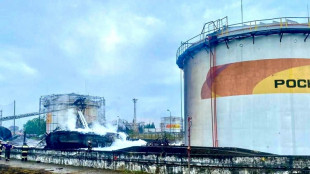
-
 Maguire feels it will be 'silly' to leave Man Utd now
Maguire feels it will be 'silly' to leave Man Utd now
-
Ukrainian suspect arrested in Italy over Nord Stream blasts
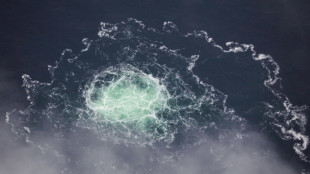
-
 England include ex-skipper Knight in Women's World Cup squad as Cross misses out
England include ex-skipper Knight in Women's World Cup squad as Cross misses out
-
Walmart lifts outlook for sales, earnings despite tariffs

-
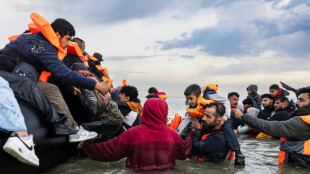 UK sees record asylum claims as row brews over housing
UK sees record asylum claims as row brews over housing
-
Swiss international Okafor move to Leeds heralds new EPL record

-
 Microsoft re-joins handheld gaming fight against Nintendo's Switch
Microsoft re-joins handheld gaming fight against Nintendo's Switch
-
McReight to captain Wallabies against Springboks

-
 Taiwanese boxer Lin agrees to gender test for world championships
Taiwanese boxer Lin agrees to gender test for world championships
-
Stocks slip as investors await key Fed speech

-
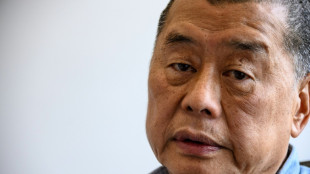 Hong Kong mogul Jimmy Lai's 'punditry' not criminal: lawyer
Hong Kong mogul Jimmy Lai's 'punditry' not criminal: lawyer
-
Bournemouth sign 'proven winner' Adli from Leverkusen

-
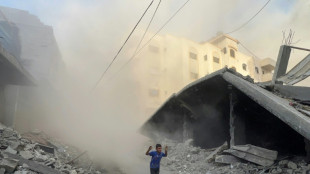 Israel pounds Gaza City as military takes first steps in offensive
Israel pounds Gaza City as military takes first steps in offensive
-
First security guarantees, then Putin summit, Zelensky says
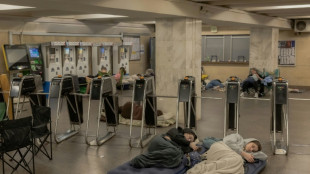
-
 Suspended Thai PM testifies in court case seeking her ouster
Suspended Thai PM testifies in court case seeking her ouster
-
Shilton congratulates Brazilian goalkeeper Fabio on breaking record

-
 Markets mixed as investors await key Fed speech
Markets mixed as investors await key Fed speech
-
Israel pounds Gaza City after offensive gets green light
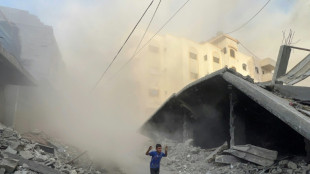
-
 Fraser-Pryce seeks Brussels boost ahead of Tokyo worlds
Fraser-Pryce seeks Brussels boost ahead of Tokyo worlds
-
Asian markets mixed as investors await key speech

-
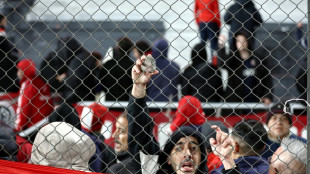 Ten hurt, 90 arrested as match abandoned following fan violence in Argentina
Ten hurt, 90 arrested as match abandoned following fan violence in Argentina
-
Indian heritage restorers piece together capital's past
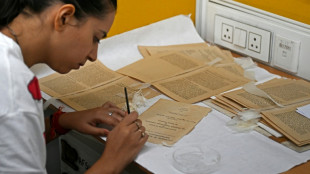
-
 Australian Rules player suspended for homophobic slur
Australian Rules player suspended for homophobic slur
-
Online behaviour under scrutiny as Russia hunts 'extremists'

-
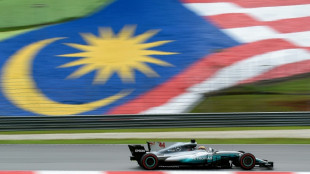 Malaysia rules out return of F1 over costs
Malaysia rules out return of F1 over costs
-
German firm gives 'second life' to used EV batteries

| CMSC | 0.21% | 23.49 | $ | |
| BCC | -0.13% | 84.39 | $ | |
| JRI | -0.04% | 13.325 | $ | |
| SCS | 0.03% | 16.185 | $ | |
| RELX | -1.11% | 48.155 | $ | |
| NGG | -0.91% | 71.427 | $ | |
| GSK | 0.51% | 40.275 | $ | |
| CMSD | 0.33% | 23.768 | $ | |
| RYCEF | 1.36% | 13.94 | $ | |
| BCE | -0.37% | 25.645 | $ | |
| AZN | 0.3% | 80.76 | $ | |
| RBGPF | 0% | 73.27 | $ | |
| VOD | -0.55% | 11.835 | $ | |
| BP | 0.37% | 34.005 | $ | |
| BTI | 0.28% | 59.175 | $ | |
| RIO | 0.9% | 61.17 | $ |

'What are these wars for?': Arab town in Israel shattered by Iran strike
An Arab town in northern Israel paid a heavy price for the ongoing air war between Iran and Israel when a ballistic missile slammed into a home there, killing four people and upending life in the small community.
Hundreds of sobbing residents crowded the narrow streets of Tamra on Tuesday to watch as the wooden coffins adorned with colourful wreaths were carried to the town's cemetery.
To some, the Iranian strike highlighted the unequal protections afforded Israel's Arab minority, while to others, it merely underscored the cruel indifference of war.
Raja Khatib has been left to pick up the pieces from an attack that killed his wife, two of his daughters and a sister in law.
"I wish to myself, if only the missile would have hit me as well. And I would be with them, and I wouldn't be suffering anymore," Khatib told AFP.
"Learn from me: no more victims. Stop the war."
After five days of fighting, at least 24 people have been killed in Israel and hundreds more wounded by the repeated barrages launched from Iran.
Israel's sophisticated air defence systems have managed to intercept a majority of the missiles and drones targeting the country.
But some have managed to slip through.
With some projectiles roughly the size of a train carriage and carrying a payload that can weigh hundreds of kilograms, Iran's ballistic missiles can be devastating upon impact.
A single strike can destroy large swaths of a city block and rip gaping holes in an apartment building, while the shockwave can shatter windows and wreak havoc on the surrounding area.
The level of destruction from the missiles has been unprecedented in Israel, even after 20 months of continuous war in the wake of the October 7, 2023 Hamas attacks.
Along with Tamra, barrages have also hit residential areas in Tel Aviv, Bnei Brak, Petah Tikva and Haifa.
- Discrimination -
As the coffins made their way through Tamra on Tuesday, a group of women tended to a relative of the victims who had become faint with grief, dabbing cold water on her cheeks and forehead.
At the cemetery, men embraced and young girls cried at the foot of the freshly dug graves.
Iran has continued to fire daily salvos since Israel launched a surprise air campaign that it says is aimed at preventing the Islamic republic from acquiring nuclear weapons -- an ambition Tehran denies.
In Iran, Israel's wide-ranging air strikes have killed at least 224 people, including military commanders, nuclear scientists and civilians.
Despite mounting calls to de-escalate, neither side has backed off from the fighting.
In Israel, frequent air raid alerts have kept residents close to bomb shelters, while streets across the country have largely emptied and shops shuttered.
But some in the country's Arab minority have said the government has done too little to protect them, pointing to unequal access to public shelters used to weather the barrages.
Most of Israel's Arab minority identify as Palestinians who remained in what is now Israel after its creation in 1948. They represent about 20 percent of the country's population.
The community frequently professes to face discrimination from Israel's Jewish majority.
"The state, unfortunately, still distinguishes between blood and blood," Ayman Odeh, an Israeli parliamentarian of Palestinian descent, wrote on social media after touring Tamra earlier this week.
"Tamra is not a village. It is a city without public shelters," Odeh added, saying that this was the case for 60 percent of "local authorities" -- the Israeli term for communities not officially registered as cities, many of which are majority Arab.
But for residents like Khatib, the damage has already been done.
"What are these wars for? Let's make peace, for the sake of the two people," he said.
"I am a Muslim. This missile killed Muslims. Did it differentiate between Jews and Muslims? No, when it hits, it doesn't distinguish between people."
M.AbuKhalil--SF-PST
